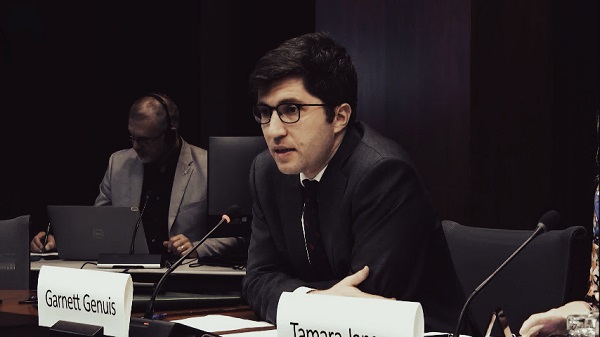National
Liberals lose another ‘safe’ seat, Trudeau pleads with Canadians to get more ‘engaged’
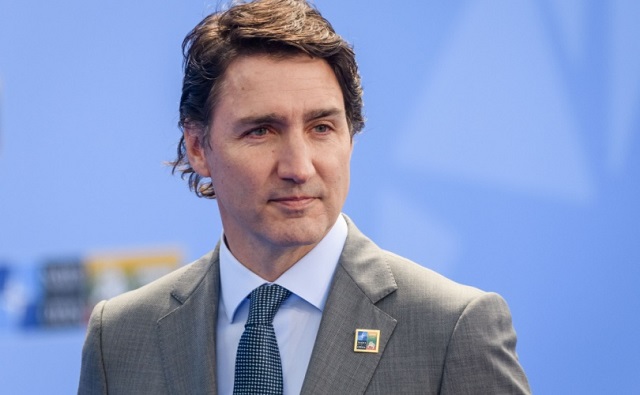
From LifeSiteNews
Trudeau’s Liberals lost yet another by-election in a ‘safe’ riding, garnering just 27.2 percent of the vote. The seat, which has been held by the Liberals since its creation in 2015, was won by the Liberals with 42.9 percent of the vote in 2021.
Prime Minister Justin Trudeau claimed Canadians need to understand what is “at stake” after his Liberal Party lost yet another byelection in a supposedly “safe” Liberal area.
After the last votes were counted early Tuesday morning, results from the Montreal-area LaSalle–Émard–Verdun riding byelection held on Monday had Bloc Québécois candidate Louis-Philippe Sauvé beat out Liberal candidate Laura Palestini by a slim margin.
The Bloc’s Sauvé garnered 28 percent of the vote, while the Liberal’s Palestini rang in with 27.2 percent of the vote. While the margin of loss was slim for the Liberals, the drop-off is significant considering the Liberals handily won the riding with 42.9 percent of the vote in 2021.
In third place was New Democratic Party with 26.1 percent of the vote, while the Conservatives came in an expected fourth place with 11.6 percent.
Speaking with reporters Tuesday morning, Trudeau, instead of taking blame for his Liberal Party’s increasing unpopularity and recent byelection upset losses, claimed that Canadian voters just need to be more “engaged.”
“We need people to be more engaged. We need people to understand what’s at stake in this upcoming election,” he said, referring to the looming 2025 election, which at this point could feasibly be called early.
“Obviously, it would have been nicer to be able to… win… but there’s more work to do and we’re going to stay.”
Last Friday, Trudeau boasted to reporters that he could not “wait for the conversations we’re having in LaSalle-Émard-Verdun.”
“I can’t wait to welcome Laura Palestini to Ottawa,” he added at the time.
The LaSalle–Émard riding, until Monday, had been under Liberal hands since it was created in 2015. Trudeau’s former minister of justice, David Lametti, was its MP until he resigned earlier this year.
Monday’s Liberal byelection loss is the second shock defeat for Trudeau’s party in just over two months. In June, the Conservative Party won a by-election in a longstanding Liberal stronghold riding in downtown Toronto.
The most recent loss suggests that Trudeau’s Liberal government is indeed hanging on by a thread, as suggested by all recent polls which have shown that Pierre Poilievre’s Conservative Party is set to win big when the next federal election takes place.
The souring of voters to the Liberal Party under Trudeau comes at the same time that even some of his MPs are turning on him. Last week, LifeSiteNews reported on how Liberal MP Alexandra Mendès, who serves as the assistant deputy speaker of the House of Commons, became the first in the party to publicly call for Trudeau to resign, saying directly that he is not the “right leader” for the party.
The Trudeau resignation call comes amid Trudeau losing support from the socialist NDP to keep him in power. NDP leader Jagmeet Singh pulled his official support for Trudeau’s Liberals two weeks ago.
Poilievre has promised that at “earliest possible opportunity” he will bring forth a non-confidence motion against Trudeau’s Liberal government which, if successful, would force an immediate election.
Media
Carney speech highlights how easily newsrooms are played by politicians announcing the same things over and over again

Plus! Global’s oops on Trump in the crosshairs and assuming what Stephen Harper thinks may not be the best idea!
It has never been easier, thanks to the internet, for journalists to check if they are being played for fools. But due either to sloth, neglect, habit or servility – pick one – way too many lack the motivation to use a search engine.
Instead, they frequently accept the role of featherheads manipulated by politicians staging one of the oldest scams in the Machiavellian playbook, the recycled “news” announcement. I say “featherheads” (patsies was another option) because, for instance, Prime Minister Mark Carney can book news network time for a full half hour speech that is nothing more than a rehash of everything he’s been saying for the past 10 months and still lead newscasts and make the front pages.
The Rewrite is a reader-supported publication.
To receive new posts and support my work, consider becoming a free or paid subscriber.
Here, I must pause to credit the Toronto Star. It, like other news organizations, received an embargoed copy of Wednesday’s speech in advance. It read it, saw that it contained no news and did not put a report on its front page. Others such as National Post and the Globe and Mail tried desperately to find a fresh angle within the speech but put it on their front pages anyway. CBC threw everything it had into it and CTV also led with it and tried its best to make it sound like news had happened.
Now, I am a reasonable and fair-minded person, so I would not be reacting were it just this incident that captured my attention. The PM is speaking, everyone gets excited, you review and lock in your story lineup and, ya, I get it. Been there, done that. But this was part of a troubling pattern that has emerged.
For instance, the government’s “plan” to hire 1,000 more Canadian Border Services guards was first announced in the Liberal election platform last spring. It was then, according to Blacklock’s Reporter, re-announced “April 10, April 28, June 3 and August 12.”
That Blacklock’s report was published Oct. 14 and focused on Public Safety Minister Gary Anandasangaree’s insistence he was “not responsible” for the promised hiring that hadn’t happened yet. Two days later, Carney announced that the previously announced and re-announced plan would be announced again in the Nov. 4 budget. And the day after that – Oct. 17 – Anandasangaree announced his ministry would be doing what he said a few days previously wasn’t his responsibility and hiring 1,000 new border guards – over the next five years. A similar pattern of announcement and reannouncements took place regarding the government’s plan to hire 1,000 more RCMP officers, also not immediately but eventually. Then, last week, Finance Minister Francois-Philippe Champagne announced a financial crimes agency would be up and running by next June. This, too, was reported as a new initiative even though the government first committed to that agency in 2021.
While not all news organizations rise to the bait, this widely carried Canadian Press story is an example of how easily the public can be misinformed by reporting that lacks proper context. Re-announcements are presented as “news” despite there being no news other than “politicians repeat what they said before to keep their names in the news.” Media that go along with this pattern of manipulation allow themselves to be accused of defining news as anything the government wishes to present as news, something about which – now that media are subsidized by politicians – they should be more cautious.
The nation needs journalists to tell the whole story or, as Robert Maynard, founder of the Maynard Institute for Journalism Education, put it:
“The first thing about journalism is about accuracy and fairness, but that’s not enough. It has to be about context, it has to be about depth.”
Speaking of headlines, Global News deserves a long stare and shake of the head for the one it slapped on its report of the “No Kings” protests held last weekend.
Seemingly oblivious to the recent assassination of Charlie Kirk and two attempts on the life of US President Donald Trump, Global initially went with the above illustrated “Trump in the crosshairs” headline before changing it to “No Kings Day rallies draw hundreds of thousands of protesters.” The updated version made no reference to the initial version.
There was quite a stir within the punditry when Dimitri Soudas, defrocked Conservative comms guy and former pal of notorious floor-crosser Eve Adams, wrote an op-ed for the Toronto Star criticizing party leader Pierre Poilievre. Rather than go with the disgruntled former employee angle, the Globe and Mail’s Larry Martin led the pack in leaping to a conclusion:
“Soudas wouldn’t have written this attack on Poilievre without Stephan (sic) Harper’s okay,” he posted. “It means the knives are out to get PP and they are big knives that could kill his leadership.”
Martin, who has had a very distinguished career, hadn’t confirmed what he assumed Harper was thinking and was quickly schooled by Anna Tomala, the former PM’s spokeswoman.
“Mr. Soudas does not speak on behalf of Mr. Harper,” she stated curtly.
Martin did not delete his original post but while to his credit he did post an update, it’s unclear his blushes were spared.
CTV, meanwhile, declined to include Tomala’s Harper statement in its report on Soudas’s op-ed.
Retired CTV reporter Alan Fryer, meanwhile, gave his past employer a blast on X after it delivered this headline: “Carney is going ‘where the puck is going to be’ in first trip to Asia as PM.”
Fryer’s world-weary response?
“My Lord, the headline. A leader couldn’t hope for a more compliant media.”
Finally, two commentators for news organizations were subjected to harm and intimidation last week and we learned that a third had been threatened in August. Terry Newman of National Post posted that she would be contacting police, Ezra Levant of Rebel News was laid out at a protest in Dublin and it was discovered that Brian Passifume of the Toronto Sun faced a death threat in August. I checked to see if the Canadian Association of Journalists (which has abandoned X) had something to say on their behalf. The CAJ’s most recent web post regarding abuse of journalists was on Sept. 25 in defence of Isaac Peltz of theindependent.ca and William Wilson, who writes for therover.ca.
Readers will notice a new DONATE button has been added. This allows you to buy The Rewrite a cup of coffee or, if you are feeling generous, wine, but doesn’t constitute a subscription. Please consider making use of it and help us save journalism from bad journalism.
(Peter Menzies is a commentator and consultant on media, Macdonald-Laurier Institute Senior Fellow, a past publisher of the Calgary Herald, a former vice chair of the CRTC and a National Newspaper Award winner.)
Invite your friends and earn rewards
Business
Trans Mountain executive says it’s time to fix the system, expand access, and think like a nation builder

Mike Davies calls for ambition and reform to build a stronger Canada
A shift in ambition
A year after the Trans Mountain Expansion Project came into service, Mike Davies, Senior Director of Marine Development at Trans Mountain, told the B.C. Business Summit 2025 that the project’s success should mark the beginning of a new national mindset — one defined by ambition, reform, and nation building.
“It took fifteen years to get this version of the project built,” Davies said. “During that time, Canadian producers lost about $50 billion in value because they were selling into a discounted market. We have some of the world’s largest reserves of oil and gas, but we can only trade with one other country. That’s unusual.”
With the expansion now in operation, that imbalance is shifting. “The differential on Canadian oil has narrowed by about $13 billion,” he said. “That’s value that used to be extracted by the United States and now stays in Canada — supporting healthcare, reconciliation, and energy transformation. About $5 billion of that is in royalties and taxes. It’s meaningful for us as a society.”
Davies rejected the notion that Trans Mountain was a public subsidy. “The federal government lent its balance sheet so that nation-building infrastructure could get built,” he said. “In our first full year of operation, we’ll return more than $1.3 billion to the federal government, rising toward $2 billion annually as cleanup work wraps up.”
At the Westridge Marine Terminal, shipments have increased from one tanker a week to nearly one a day, with more than half heading to Asia. “California remains an important market,” Davies said, “but diversification is finally happening — and it’s vital to our long-term prosperity.”
Fixing the system to move forward
Davies said this moment of success should prompt a broader rethinking of how Canada approaches resource development. “We’re positioned to take advantage of this moment,” he said. “Public attitudes are shifting. Canadians increasingly recognize that our natural resource advantages are a strength, not a liability. The question now is whether governments can seize it — and whether we’ll see that reflected in policy.”
He argued that governments have come to view regulation as a “free good,” without acknowledging its economic consequences. “Over the past decade, we’ve seen policy focus almost exclusively on environmental and reconciliation objectives,” he said. “Those are vital, but the public interest extends well beyond that — to include security, economic welfare, the rule of law, transparency, and democratic participation.”
Davies said good policy should not need to be bypassed to get projects built. “I applaud the creation of a Major Projects Office, but it’s a disgrace that we have to end run the system,” he said. “We need to fix it.”
He called for “deep, long-term reform” to restore scalability and investment confidence. “Linear infrastructure like pipelines requires billions in at-risk capital before a single certificate is issued,” he said. “Canada has a process for everything — we’re a responsible country — but it doesn’t scale for nation-building projects.”
Regulatory reform, he added, must go hand in hand with advancing economic reconciliation. “The challenge of our generation is shifting Indigenous communities from dependence to participation,” he said. “That means real ownership, partnership, and revenue opportunities.”
Davies urged renewed cooperation between Alberta and British Columbia, calling for “interprovincial harmony” on West Coast access. “I’d like to see Alberta see B.C. as part of its constituency,” he said. “And I’d like to see B.C. recognize the need for access.”
He summarized the path forward in plain terms: “We need to stem the exit of capital, create an environment that attracts investment, simplify approvals to one major process, and move decisions from the courts to clear legislation. If we do that, we can finally move from being a market hostage to being a competitor — and a nation builder.”
-
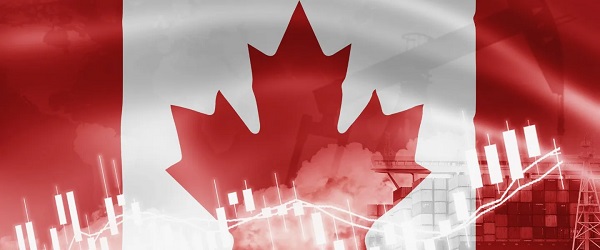
 Business1 day ago
Business1 day agoCarney government risks fiscal crisis of its own making
-

 Alberta1 day ago
Alberta1 day agoB.C. would benefit from new pipeline but bad policy stands in the way
-
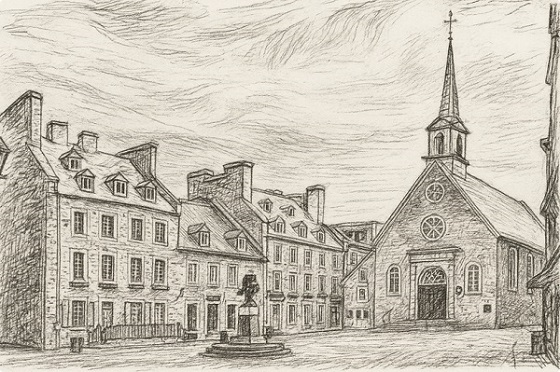
 Frontier Centre for Public Policy1 day ago
Frontier Centre for Public Policy1 day agoChurches Are All That Stands Between Canada And Tyranny
-
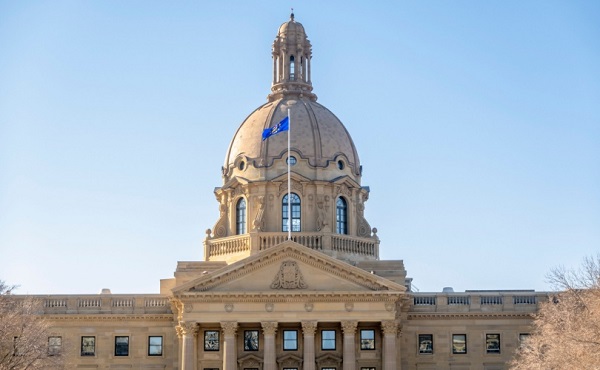
 Alberta1 day ago
Alberta1 day agoAlberta introduces bill allowing province to reject international agreements
-

 Business10 hours ago
Business10 hours agoTrans Mountain executive says it’s time to fix the system, expand access, and think like a nation builder
-

 Energy10 hours ago
Energy10 hours agoCAPP calls on federal government to reset energy policy before it’s too late
-

 Business1 day ago
Business1 day agoTrump Admin Establishing Council To Make Buildings Beautiful Again
-

 International1 day ago
International1 day agoUS Deploys Gerald Ford Carrier Strike Group To Target Cartels





